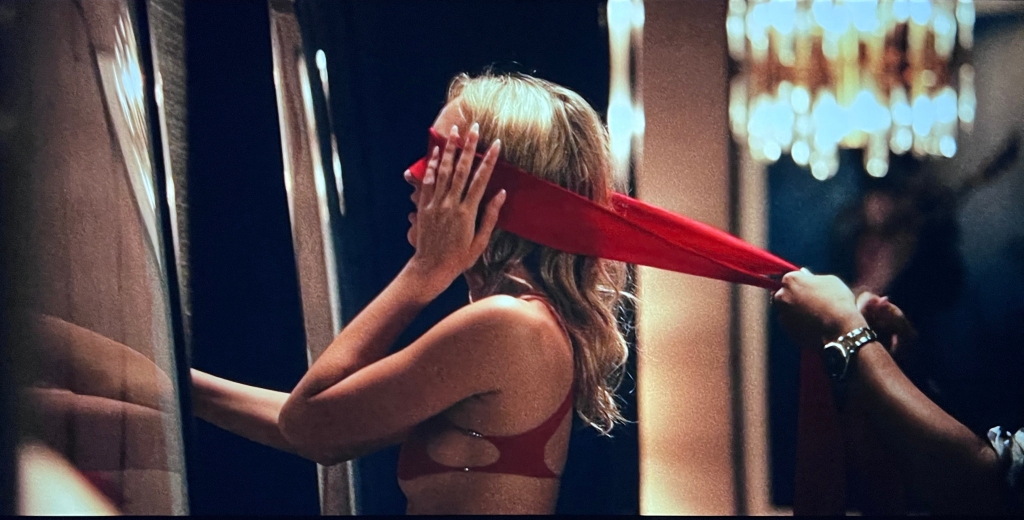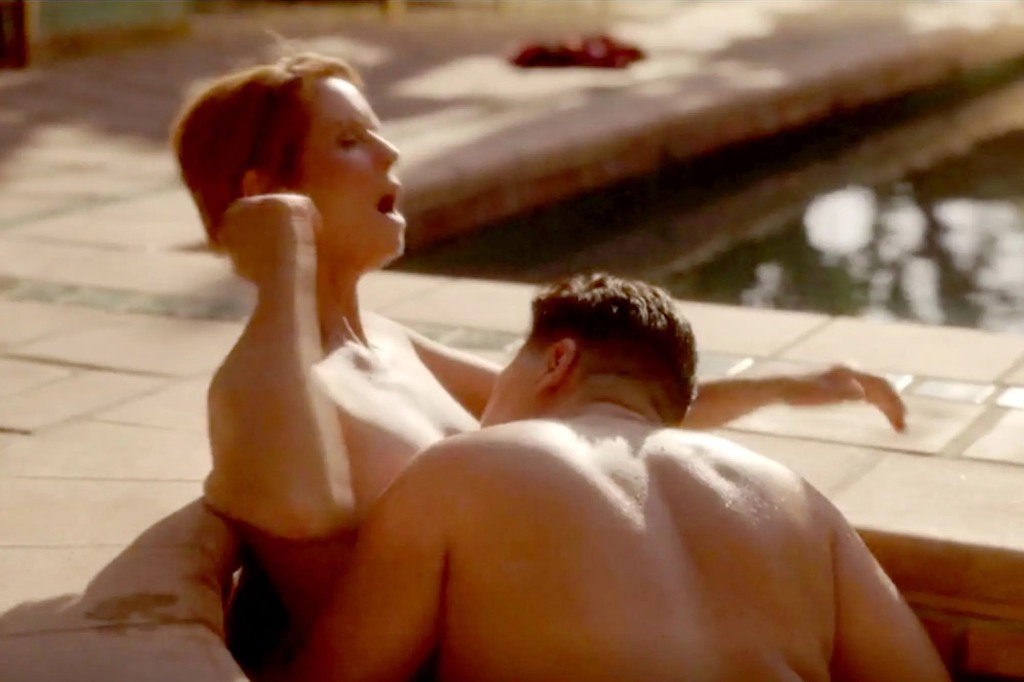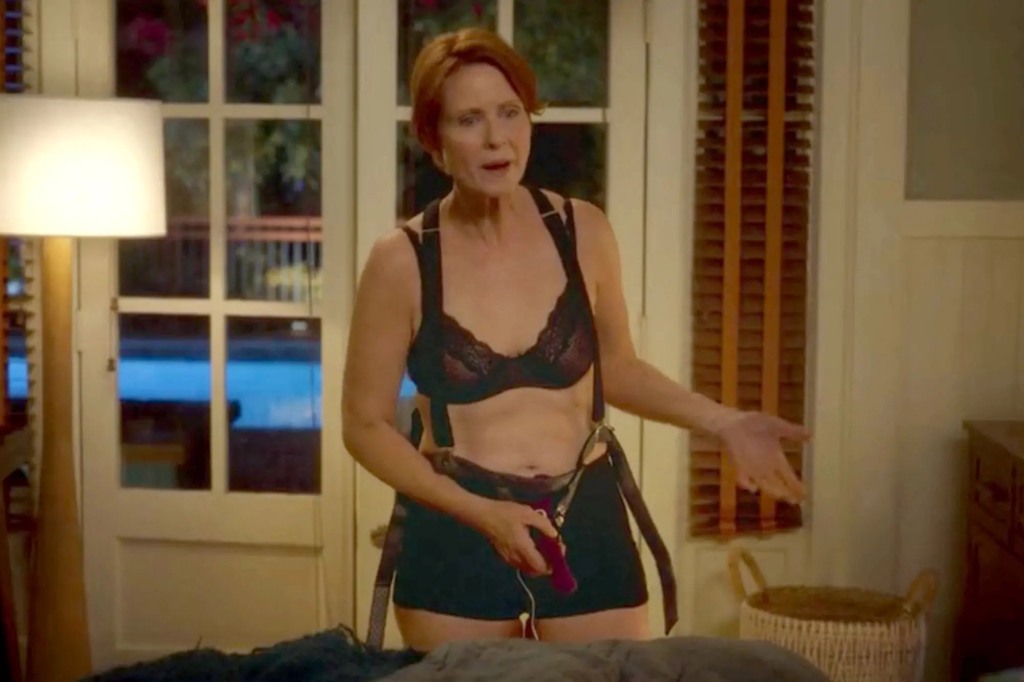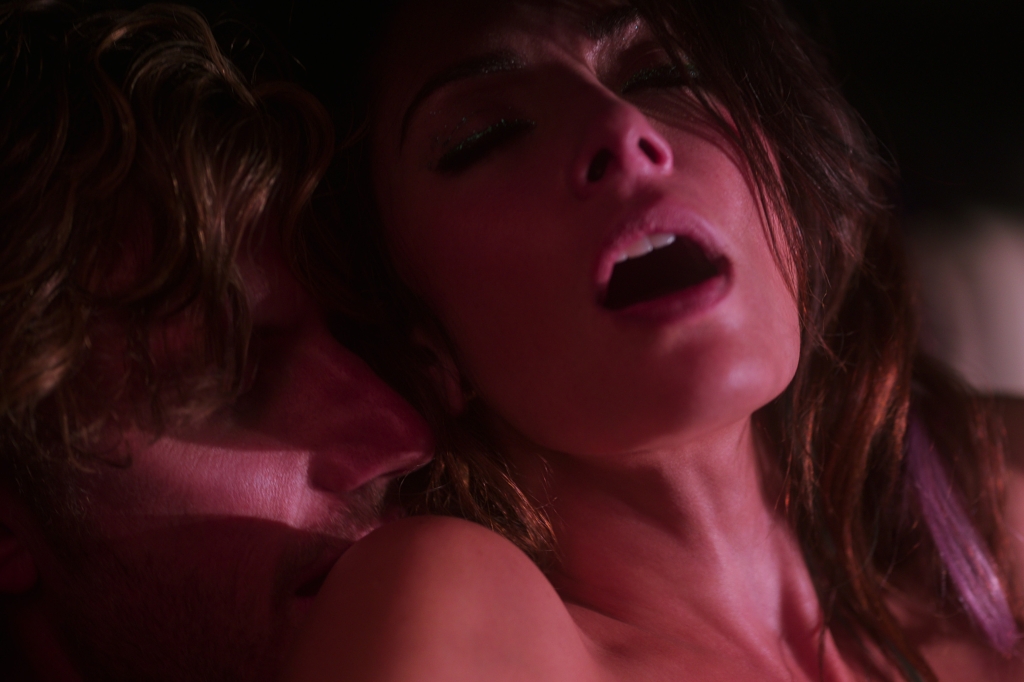‘The Idol,’ ‘And Just Like That’ rely too much on raunchy sex
The much kvetched-about Max series “The Idol” — touted as having the “worst sex scene in history” — is ending Sunday, sooner than some viewers expected.
This week, HBO confirmed the show is wrapping up after only five episodes instead of the rumored six, sparing us a protracted nightmare.
It feels like mercy.
The series follows Lily-Rose Depp as Jocelyn, a vulnerable pop star fresh off a Britney Spears-style breakdown now trying to find her voice. Instead she falls under the control of cult leader Tedros (The Weeknd) who takes over her life, career and bedroom with X-rated maneuvers.
The often sadistic simulated sex between the pair has drawn a lot of blowback and been described as “rape fantasy” or “torture porn.”
However, the real torture is inflicted on the handful of viewers who endured (by the show’s third week, only 133,000 were watching in real time, down more than 100K from the premiere). To quote my favorite line from the 1980s sitcom “Growing Pains,” this series is simply “replete with stinkiosity.”
Much has been made of The Weeknd’s “comically bad acting.” Clad in a rattail and overcoat, he looks like the lost member of Color Me Badd and, for a supposed guru, has as much gravitational pull as a deflated balloon.
Depp is beautiful, half-naked and effectively empty — often evicting a single drop from her eye without even moving her face, like a miraculous weeping statue of the Virgin Mary.
As for those ubiquitous skin-on-skin scenes, Depp defended them to Vogue Australia as “provocative.”

“I was never interested in making something puritanical. It’s OK if this show isn’t for everyone and that’s fine — I think all the best art is [polarizing],” she said.
But what about the worst art?
I like smut when done well, but this is smut for smut’s sake — seemingly hoping people are so shocked by raw carnal action they don’t notice that what they’re watching is pure crapola.
It’s sex over substance. “The Idol” isn’t the only culprit.

On the “Sex and the City” spinoff “And Just Like That,” the characters are flat, the storylines are lame, and there’s not a bit of nuance.
It’s like “Afterschool Special” lessons on oppression and privilege — a paint-by-numbers diversity effort that seems to function as Cynthia Nixon’s personal offering of reparations. (In recent years, the star has bemoaned the original show’s “all white cast“).
As a colleague pointed out, the dialogue feels like it was written by Chat GPT.

But there’s sex. Lots of it. Particularly for Nixon’s character Miranda, like when she’s writhing topless in a hot tub with her nonbinary lover Che (played by Sara Ramirez). Or when she’s wearing a strap-on and viewers are subjected to the sight of Miranda’s face jammed between Che’s thighs.
There seems to be an expectation that, because it’s groundbreaking — nonbinary sex portrayed on a mainstream show — we should applaud. Or at least pretend it’s watchable.
Pandemic television was ripe with lusty offerings. The breathy lovemaking scenes of “Bridgerton” made us all blush — but also transported us from our dented couches to a dreamy, pastel Regency London and introduced a novel vision of nobility.

The first season of “White Lotus” featured a memorably taboo act between two dudes and held us captive as the mysterious death slowly revealed itself over the six-episode arc. Then there was the first season of Netflix’s “Sex/Life,” which was so raunchy, I’m sure I’ve seen star Sarah Shahi’s bare breasts more than I’ve seen my own. Cheesy, yes, but it captured the universal idea of being caught between two worlds.
In each of these cases, the sex was a naughty, shocking visual accessory to a solid story with good writing and acting.

But lately, raunchy sex has became a lazy crutch — a supporting beam to a ramshackle structure.
There is no doubt that sex sells. But without a good story, you just have porn. And you don’t need to pay for a streaming service for that. It’s free on your phone.
Read the full article Here


